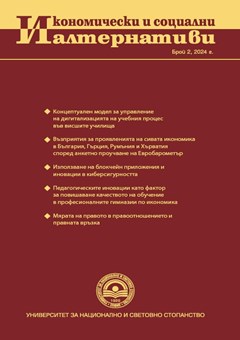Long-term Impact of FDI-Corruption Interaction on Domestic Investment in Nigeria
Authors: Nurudeen Abu, Ben Obi, Mohd Zaini Abd Karim, Awadh Ahmed Mohammed Gamal, Musa Abdullahi Sakanko, Joseph David
Abstract
Over the past three decades, Nigeria has experienced unstable domestic investment and foreign direct investment inflows, and the country continues to face rising corruption and related problems. An ARDL technique has been adopted to explore the long-term FDI’s impact on domestic investment including evaluating if the FDI-domestic investment nexus is dependent on the control of corruption in Nigeria over this period. The bounds test result shows an evidence of a long-term relation amongst FDI, domestic investment and corruption control (including GDP per capita, lending rate, exchange rate and oil price). We find that increasing inward FDI reduces (crowd-out) domestic investment and greater corruption control (lowering corruption) leads to a higher domestic investment in Nigeria over the long-term. Also, the influence of FDI on domestic investment depends on (or varies with) the control of corruption. FDI crowd-in domestic investment at greater corruption control than at lesser corruption control in the long-term. Other significant long-term influencers of domestic investment are the exchange rate and oil price. Given these outcomes, the study offers some recommendations to boost domestic investment in Nigeria.

